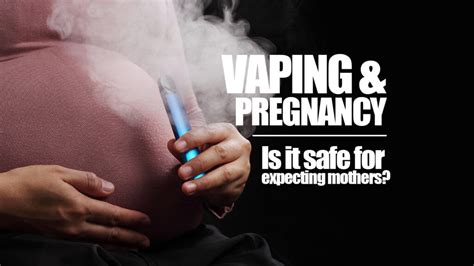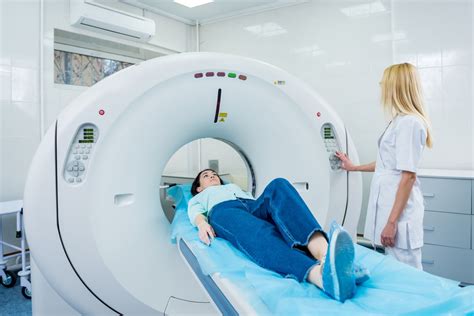Vaping During Pregnancy: Protect Your Baby's Health

The journey of pregnancy is a significant life event, filled with anticipation, joy, and a deep sense of responsibility. Expectant mothers often find themselves navigating a plethora of advice and guidelines aimed at ensuring the best possible health outcomes for their babies. One critical area of concern that has gained considerable attention in recent years is the use of electronic cigarettes, or e-cigarettes, during pregnancy. Vaping, as it’s commonly known, has been touted by some as a safer alternative to traditional smoking, but does this perception hold true, especially when considering the health and development of an unborn child?
To address this question, it’s essential to delve into the current understanding of vaping’s effects on pregnancy and fetal health. The e-cigarette phenomenon has grown rapidly since its inception, with a diverse range of products and flavors now available. Initially, these devices were marketed as tools to help smokers quit or reduce their tobacco consumption. However, their appeal has extended beyond this demographic, attracting non-smokers, including youth and pregnant women, who might view vaping as a less harmful alternative to smoking traditional cigarettes.
The Chemical Landscape of Vaping Products
Vaping products contain a mixture of substances, including nicotine, flavorings, and various chemicals used in the production of e-liquids. Nicotine, a highly addictive substance found in tobacco products, is also a key component in many e-cigarettes. Its presence is significant because nicotine can have profound effects on the developing fetus. Research has shown that nicotine exposure during pregnancy can lead to changes in the structure and function of the fetal brain, affecting areas critical for learning, memory, and regulation of emotions. Moreover, nicotine can cause blood vessels to constrict, potentially reducing blood flow to the placenta and, by extension, limiting the nutrients and oxygen available to the fetus.
Beyond nicotine, the flavorings and other chemicals in e-liquids have also raised health concerns. Certain flavorings, for example, have been linked to respiratory issues, and the heating of these chemicals during the vaping process can produce new, potentially toxic compounds. The long-term health effects of inhaling these substances are not fully understood, but preliminary evidence suggests they could pose significant risks, including respiratory problems and increased heart rate, both of which could have implications for pregnant women and their developing babies.
The Risks to Fetal Health
Studies examining the impact of vaping on pregnancy outcomes have begun to shed light on potential risks. While the data is still emerging, there is evidence to suggest that vaping during pregnancy may be associated with an increased risk of preterm birth and low birth weight, both of which are significant predictors of short- and long-term health issues for the child. Preterm babies often require extended hospital stays and may face higher risks of developmental delays, learning disabilities, and chronic diseases later in life. Similarly, babies born with low birth weight are at an increased risk for a range of health problems, including respiratory distress syndrome, infections, and potential long-term effects on growth and cognitive development.
Furthermore, the potential for vaping to affect fetal brain development is a critical concern. Nicotine and other substances found in e-cigarette aerosol can cross the placental barrier, exposing the fetus to these chemicals. This exposure has been linked to alterations in brain structure and function, which could influence cognitive abilities, emotional regulation, and even predispose individuals to substance use disorders later in life.
Guidance for Pregnant Women and Healthcare Providers
Given the potential risks associated with vaping during pregnancy, it’s crucial for expectant mothers to prioritize their health and the health of their babies. For those who smoke or vape, quitting is the best course of action. Numerous resources are available to support cessation efforts, including counseling, nicotine replacement therapy (though this should be used cautiously in pregnancy and under medical guidance), and prescription medications.
Healthcare providers play a vital role in this process, serving not only as sources of information but also as advocates for their patients’ health. Regular screenings for tobacco and e-cigarette use should be a standard part of prenatal care, accompanied by non-judgmental counseling and support for those looking to quit. Furthermore, providers must stay updated on the latest research regarding vaping and pregnancy to offer the most current and effective advice.
FAQ Section
Is it safe to vape during pregnancy if I'm trying to quit smoking?
+While vaping might seem like a safer alternative to smoking, the risks associated with nicotine and other substances in e-cigarette aerosol to fetal health are significant. The best approach is to quit altogether, using evidence-based cessation methods under the guidance of a healthcare provider.
Can vaping during pregnancy cause long-term health issues for my child?
+Yes, exposure to substances in e-cigarette aerosol during pregnancy has been linked to potential long-term effects on the child's health, including increased risk of respiratory problems, developmental delays, and potential impacts on cognitive function and emotional regulation.
How can I get help if I'm struggling to quit vaping during pregnancy?
+Talk to your healthcare provider about your struggles with quitting. They can offer guidance, support, and connect you with resources such as cessation programs, counseling, and support groups tailored for pregnant women.
Conclusion
The decision to vape during pregnancy is a complex issue, influenced by perceptions of risk, addiction, and the desire for a perceived safer alternative to traditional smoking. However, the current scientific understanding suggests that vaping poses significant risks to fetal health, from potential effects on brain development and cognitive function to increased risks of preterm birth and low birth weight. Expectant mothers, informed by the latest research and guided by healthcare providers, must make informed decisions about their health and the health of their babies. The journey to a healthier pregnancy and a healthier baby is one that requires vigilance, support, and a commitment to avoiding substances that could jeopardize the well-being of the next generation.



